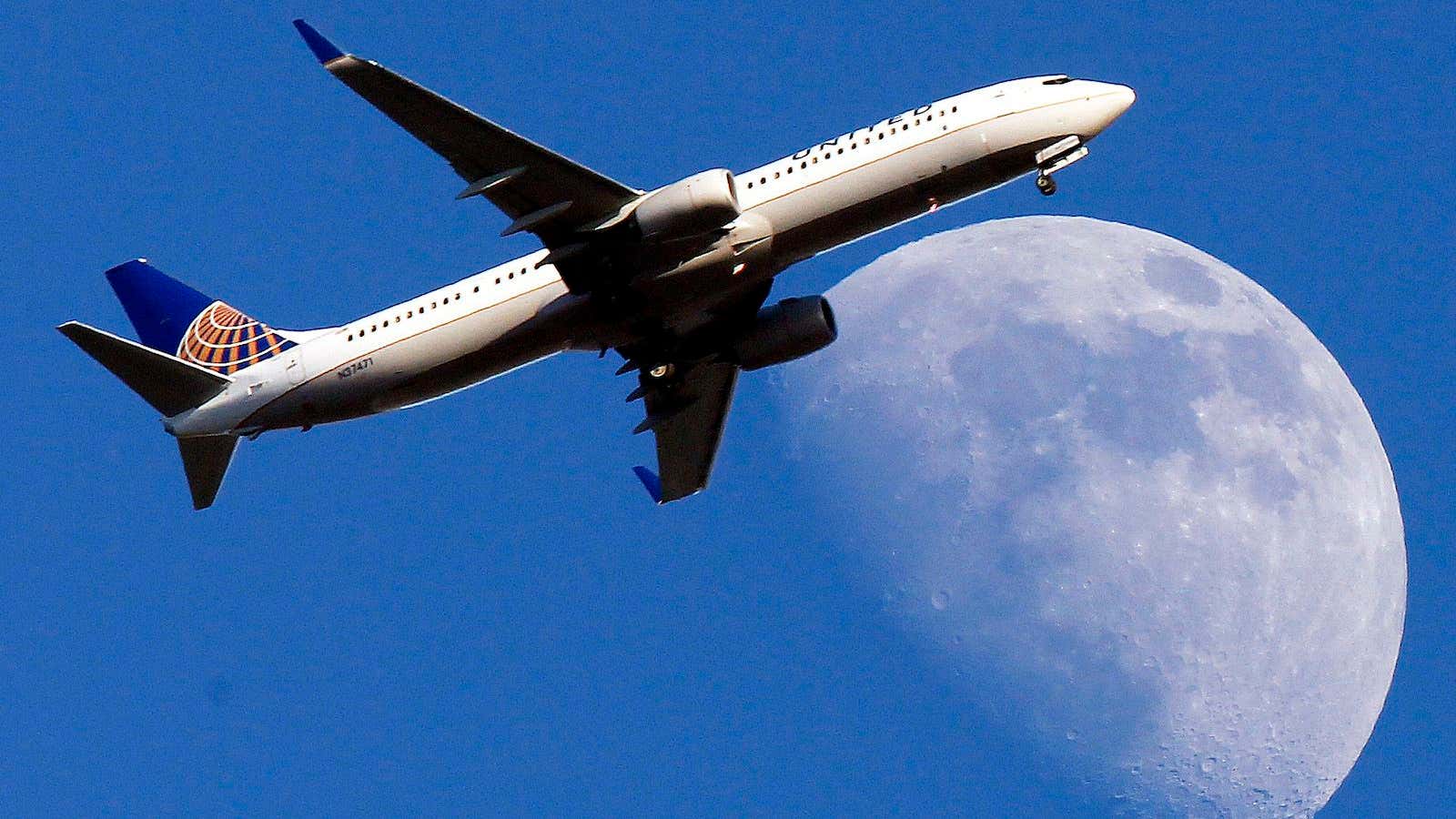Cheap oil, which this week closed below $50 a barrel for the first time in nearly 6 years, has been a boon for beleaguered motorists who are enjoying lower prices at the pump. But will airfares follow the same downward spiral? The short answer is: Don’t hold your breath.
Jet fuel, airlines’ biggest expense, has fallen by roughly a third over the past year. Meanwhile, airfares have continued to climb, along with airlines’ profits. So what gives? There are several reasons for staying the course on price, according to airline executives: First, airlines that have put big bets on future oil prices say that being locked into those investments doesn’t allow for short-term changes in how they charge customers. Others say there’s no telling what will happen to oil prices in future, and that sudden price changes can hurt airlines long-term. And some say too many consumers are clamoring for plane tickets to justify dropping prices—even when costs are down.
Flying may start to get cheaper in six months or so, when airlines’ fuel investments change, according to one global airline association. But you wouldn’t be able to tell from the way airline CEOs are talking.
We pulled together a smattering of commentary on oil prices by airline executives from their third quarter earnings calls and investor meetings. By that measure, the future of airfares is decidedly bleak:
Richard Anderson, CEO of Delta Air Lines:
“It’s wonderful that fuel has run down–we love it. There’s a $2 billion opportunity out there if we hold fare levels constant. But over the very long-term horizon, it’s just more conservative and prudent to use a high fuel assumption when you’re buying airplanes or making other investments, and then when it comes in lower, hang on to all of it.”
Scott Kirby, American Airlines president:
“Air travel remains a great bargain. We’ll continue to keep it a great bargain for customers. But in a strong demand environment, we don’t have plans to go off and just proactively cut fares.”
Gary Kelly, CEO and chairman of Southwest Airlines:
“You remember 1999, crude oil, I think was down to $10 a barrel only to be followed with increases every single year for the next decade. […] So that’s what worries me. […] There’s no way that we can count on $80 crude oil going forward. I’m not willing to do that.”
As a point of caution, Kelly referenced 2008, when airlines tried unsuccessfully to lower fares and then raise them again when energy prices spiked:
“What I would not want to do to customers is take them through the same volatile ride with fares, lowered in one day, raised in the next day, I think that that would be absolutely the worst thing that we could do when we have absolutely no plan to do that.”
Pierre-Francois Riolacci, CFO of Air France-KLM:
“[W]e definitely believe that we will keep some of the price advantage [of lower fuel costs]. But we also make the assumption that part of it will be transferred to customers in a market where there is overcapacity. […] I think that we need to be careful. And I will not permit in saying that we will keep the majority of it. We’ll keep a significant chunk. It could be well above the majority, it could be below.”
B. Ben Baldanza, CEO, president, and director of Spirit Airlines:
“It’s really going to be a demand-based pricing environment, as it has always been. Lower fuel prices create a little bit of tailwind in the margin right now, which is good for us and probably good for the industry. But as long as demand stays strong, as we see it right now, we believe that, that will—we can—we’ll take good advantage of that in the pricing environment as well.”
